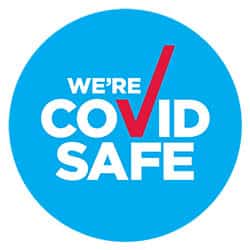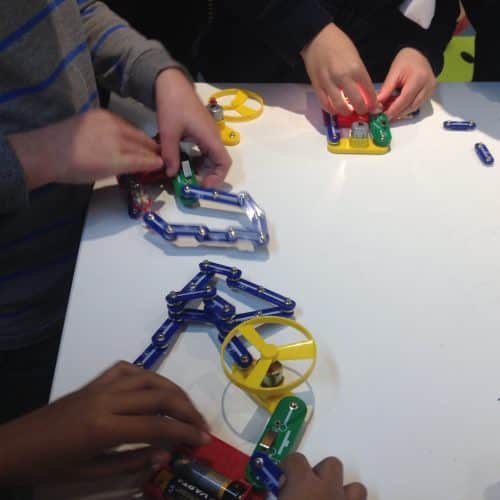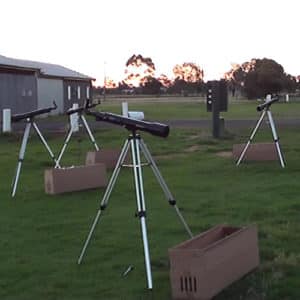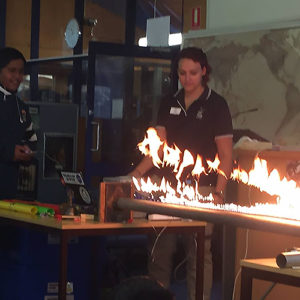https://www.fizzicseducation.com.au/wp-content/uploads/2022/12/Liquid-nitrogen-cloud-1920-x-200px-dark-blue-wash.jpg
Electrical Circuits
Delve deep into series & parallel circuits as your students use a variety of resistors, motors & more in this hands-on electricity workshop!
A hands-on workshop where students learn how electrical circuits really work.
- Learn about series vs. parallel circuits.
- Learn about different types of resistors & diodes
- Apply Ohm’s Law and take advantage of the path of least resistance.
- Play with sirens, bells and buzzers.
- Get motors to spin, electrical gates to work, understand circuit diagrams and much more!
The session begins simply to introduce the basics of open vs. closed circuits and then slowly introduces that various circuits that can be made. This is highly open-ended: there are 180 separate circuits layouts that can be made and so once the students have a firm understanding of the content and background science they can then explore at their own pace.

Australian ACARA Content Outcomes:
Energy transfer through different mediums can be explained using wave and particle models (ACSSU182)
Energy conservation in a system can be explained by describing energy transfers and transformations (ACSSU190)
Australian National Curriculum Mapping for all our science workshops & shows
NSW K – 10 Science Syllabus mapping for all our incursions
NSW Science Syllabus Content
A student:
- applies models, theories and laws to explain situations involving energy, force and motion SC5-10PW
explains how scientific understanding about energy conservation, transfers and transformations is applied in system SC5-11PW
PW3
- Scientific understanding of current electricity has resulted in technological developments designed to improve the efficiency in generation and use of electricity.
NSW Science 7–10 Syllabus
(Implementation from 2026)
For explanatory points & implementation advice for each dot point, please visit the Science 7 -10 Curriculum site
A student:
- uses scientific tools and instruments for observations SC4-WS-01
- identifies questions and makes predictions to guide scientific investigations SC4-WS-02
- follows a planned procedure to undertake safe and valid investigations SC4-WS-04
- uses data to identify trends, patterns and relationships, and draw conclusions SC4-WS-06
- selects and uses scientific tools and instruments for accurate observations SC5-WS-01
- develops questions and hypotheses for scientific investigation SC5-WS-02
- follows a planned procedure to undertake safe, ethical, valid and reliable investigations SC5-WS-04
- analyses data from investigations to identify trends, patterns and relationships, and draws conclusions SC5-WS-06
- evaluates current and alternative energy use based on ethical and sustainability considerations SC5-EGY-01
NSW K – 10 Science Syllabus mapping for all our NSW incursions
Victorian Science Syllabus:
- Electric circuits can be designed for diverse purposes using different components; the operation of circuits can be explained by the concepts of voltage and current (VCSSU130)
- The interaction of magnets can be explained by a field model; magnets are used in the generation of electricity and the operation of motors (VCSSU131)
Feeback on this Electrical Circuits Workshop
Appropriate for Years 9 to 10 with a maximum of 30 students per class.
Access to 15 tables or a similar floor space.
Chairs are not required.
Duration 60 or 90 minutes, set up time 30 minutes and pack up time 30 minutes
During Social Distancing – Contact us
and we’ll tailor a program to suit both your school and the State’s social distancing requirements. Further details here

Did you know about our larger stage shows?
Designed to engage groups of up to 240 students, pair this workshop with one of these school favourites!
Big Science Big Fun
tick tick BOOM!
Destination Moon























I just wanted to pass on how much the staff and students really enjoyed it and how perfect it was to launch our science week activities. The students were enthralled, educated and entertained – a perfect trifecta!
-Caulfield Grammar School – Big Science Big FunThanks so much for presenting at our school on Monday. Our students enjoyed the show.
-Greenvale Primary School – Big Science Big FunFizzics Education curated a thoughtful and hands-on experience for the children, incorporating practical, skill-based learning activities and followed by a science presentation at the end of the event involving liquid nitrogen. This was delivered safely and effectively, capturing both the children and the parents for the duration of the presentation.
-Macquarie Bank – Family Fun DayFizzics Education ran a show today at our school and it was wonderful. He was a great facilitator and the show was age appropriate and well done.
-Mount Zion Early learning centre – Little Science Big FunI just wanted to pass on how much the staff and students really enjoyed it and how perfect it was to launch our science week activities. The students were enthralled, educated and entertained – a perfect trifecta!
-Caulfield Grammar School – Big Science Big FunThanks so much for presenting at our school on Monday. Our students enjoyed the show.
-Greenvale Primary School – Big Science Big FunFizzics Education curated a thoughtful and hands-on experience for the children, incorporating practical, skill-based learning activities and followed by a science presentation at the end of the event involving liquid nitrogen. This was delivered safely and effectively, capturing both the children and the parents for the duration of the presentation.
-Macquarie Bank – Family Fun DayFizzics Education ran a show today at our school and it was wonderful. He was a great facilitator and the show was age appropriate and well done.
-Mount Zion Early learning centre – Little Science Big Fun